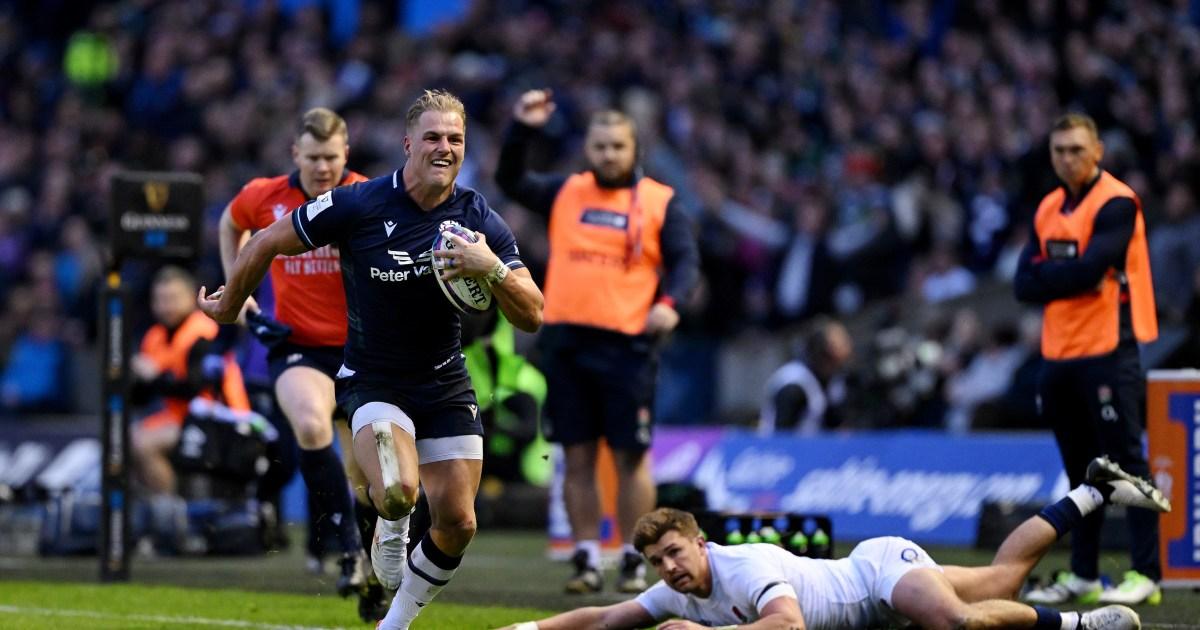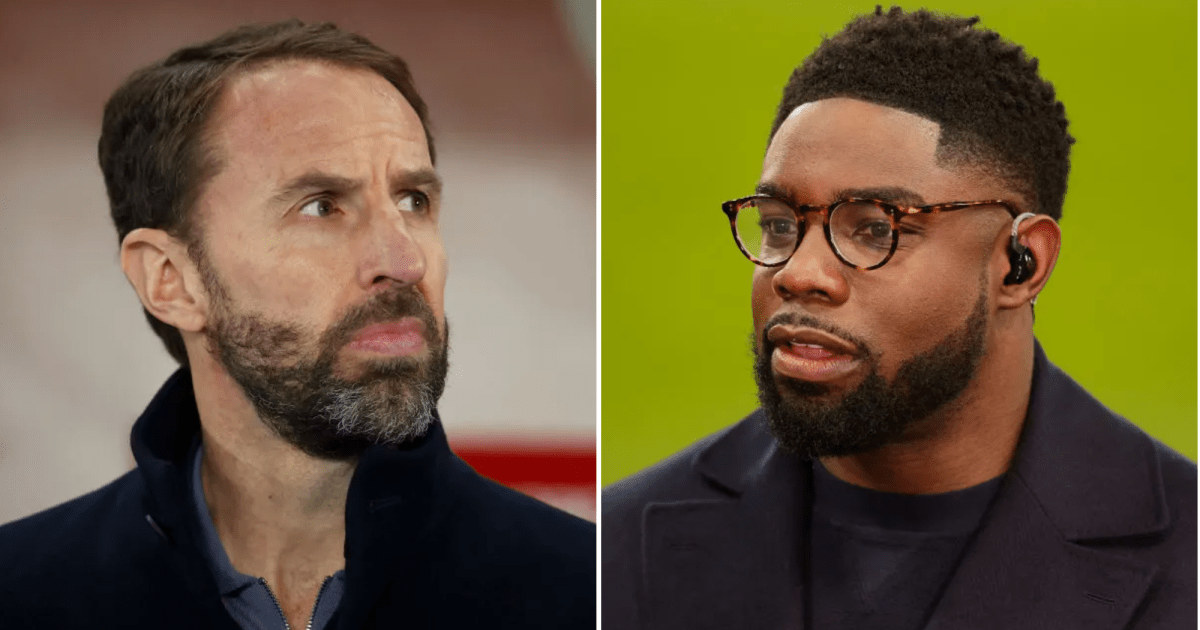If the 2024 Six Nations has taught us anything, it is that the significance of where a rugby player was born grows exponentially, and in direct proportion, to the number of points their side has beaten yours by.
It’s called rugby math. Here’s a simple calculation. Take Duhan van der Merwe, the South African-born winger who has played for Scotland for three-and-a-half years, and built his life there for seven.
Add a hat-trick against England, a player-of-the-match performance and a fourth straight Calcutta Cup and it equates to a storm of fury, squared. Like all equations, it requires both halves.
Van der Merwe on a losing Scottish side, as he was when his adopted nation was knocked out of the World Cup at the pool stages, was as a noble element – unoxidised by the heat of anger, in its pure state. But, add the building frustration of a media dissecting a beaten England and we have combustion. I’m mixing my maths and science, but I was more of an arts student.
I will stay with chemistry though, because the resulting gasses from the initial flare-up spread across the world of rugby. From the northern hemisphere to New Zealand, newspapers and forums alike have fizzed with the eligibility debate. It’s hardly surprising the vapours have floated across the Irish Sea.
The essence of this calculation, don’t forget, is the success of a side that isn’t yours. And so, we’ve had a week of reminders that the likes of Bundee Aki and James Lowe were not born on the Emerald Isle, yet have the audacity to play by World Rugby rules and not only pull on the green jersey and belt out Ireland’s Call with the best of them, but win. Repeatedly. The suggestion Lowe is as Irish as a ‘McDonald’s Shamrock Shake’ tastes like a whine made mostly of sour grapes.
Don’t we, quite rightly, celebrate the Filipino flag on the exposed underpants of Marcus Smith? Isn’t that multi-heritage modernity in all its peachy glory?
It may seem inconsequential, or casually flippant at worst, to question the ‘true’ nationalities of those on the opposing team. They’re not ‘yours’ anyway, so what does it matter? There are several reasons, some arguably more sinister than others.
Firstly, the debate ignores the reality of something as potentially fluid as nationality. I say that as someone born with dual nationality, with a husband of dual nationality, whose children have four passports to choose from, before counting the country of my son’s birth and where we have lived for five-and-a-half years, the Netherlands.
I accept most of the current chat revolves around the issue of residency but here we get into variations of colour, which is where it becomes dangerous. At what point do the questions legitimately begin?
In childhood, when Sam Underhill moved to England from the United States, where his RAF father was stationed? You could argue he, or Kiwi-born Ethan Roots, were always English because of their parents, but does that arbitrary fact of birth make them more, or less, true to the country they chose to play for?
Would my children be a different shade of Dutch if they were to make the decision to denounce all other nationalities in favour of the one with the strongest childhood ties, but no ancestral legacy? Their full immersion in our adopted land makes me feel more strongly connected myself; should blood heritage always work backwards, or does giving birth to a child in a country connect you more strongly through the blood of your own and of their bodies? And that’s before considering the bonds of community.
What makes you the nationality with which you identify? In these emotive matters, it is always wise to return to the letter of the law, and in this case, that of the sport. Those rules pay respect to anyone who has uprooted their lives and, in most instances, that of their families for five years or more, to build an existence entirely dedicated to rugby for as long as they can contribute to the game.
We can split hairs and point out the requirement used to be for three years’ residency, but since the likes of Aki has been in Ireland for a decade and ignored lucrative offers from elsewhere to stay with Connacht, it is something of a moot point.
While all of this debate may add tension to a fixture that barely needs the additional input, there is only one sum that matters in the barnstormer of a clash, England against Ireland.
Because for all the talk of who should really have the right to pull on whichever jersey of whichever colour, the maths don’t allow for caveats, or nuances. It comes to 15 against 15 and what that equates to on the scoreboard. See you in class.
MORE : Ignoring the attack is a risky way for England to put brakes on Ireland’s Six Nations juggernaut
MORE : The wedding can wait, I’m fully focused on one final push for Olympic glory










